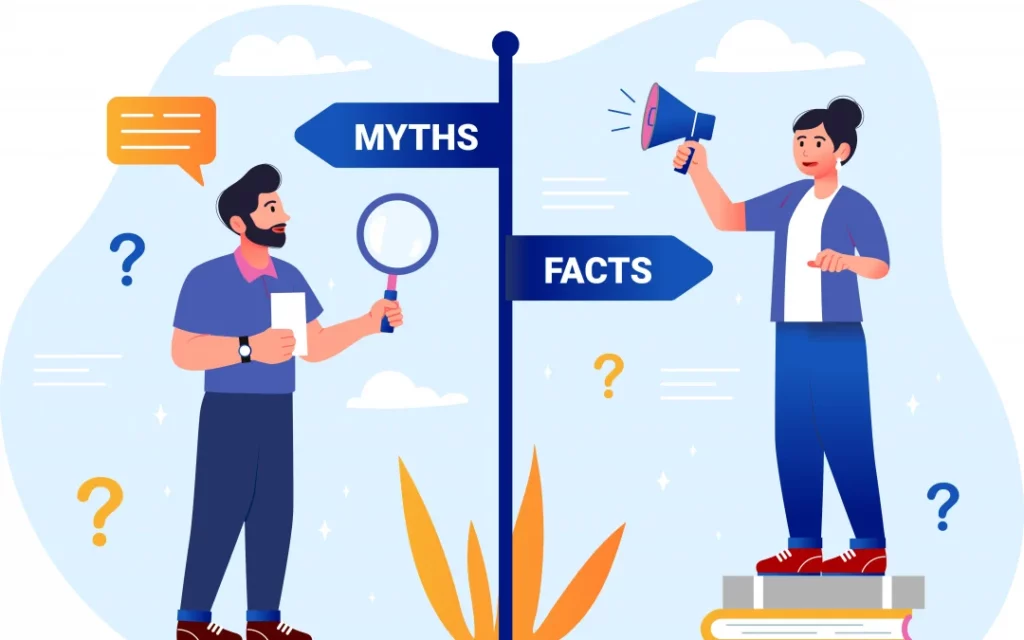
Debunking College Myths
Debunking College Myths
College- the word alone can evoke a wide range of emotions, from excitement to anxiety. As high school students prepare for this pivotal chapter of their lives, they often encounter a myriad of myths and misconceptions about what college is truly like. In this comprehensive guide, we’ll debunk some of the most common college myths and provide you with a clearer, more realistic picture of what to expect.
Myth 1: College is All About Partying
One of the most enduring myths about college is that it’s a four-year party where studying takes a backseat to socializing. While college can offer vibrant social scenes and a chance to explore newfound independence, academics remain a top priority. Students are expected to balance coursework, attend classes, and meet academic responsibilities. The reality is that successful college students find a healthy balance between academics and social life, knowing when to focus and when to have fun.
Myth 2: You Must Know Your Major from Day One
The pressure to declare a major before even setting foot on campus is a misconception. Many students enter college as undeclared, and that’s perfectly okay. You have time to explore different and fields of study before making a decision. Advisors and career services can help guide you toward a major that aligns with your interests and goals. It’s common for students to change their majors or discover entirely new interests during their college journey.
Myth 3: College is Only for the Academically Elite
Contrary to the belief that college is exclusively for top academic achievers, colleges and universities value diversity and seek students with a wide range of talents, backgrounds, and experiences. Many institutions offer support services to help students succeed academically, regardless of their previous academic performance. College Admissions consider more than just grades; they assess your character, extracurricular involvement, and potential to contribute to the campus community
Myth 4: You Need to Take on Massive Student Loan Debt
While college can be costly, it’s not inevitable that you’ll graduate with a mountain of debt. Scholarships, grants, and financial aid programs can significantly reduce the cost of tuition. Additionally, consider community college or in-state public universities as more affordable options. It’s crucial to explore all available financial aid opportunities and make informed decisions about managing college expenses.
Myth 5: You Have to Graduate in Four Years
The traditional four-year path to a bachelor’s degree is just one option. Many students choose to take a different route, whether it’s pursuing a part-time schedule, taking gap years, or attending school while working. The important thing is to complete your degree at your own pace. Colleges offer flexibility in scheduling to accommodate various student needs and circumstances, ensuring that you can achieve your educational goals on a timeline that works for you.
Myth 6: College Guarantees a High-Paying Job
While a college degree can open doors to higher-paying job opportunities, it doesn’t automatically guarantee financial success. The job market is competitive, and success often depends on factors such as your chosen field, the demand for your skills, and connections, but securing a high-paying job also requires dedication, networking, and sometimes further education or training.
Myth 7: You Need to Be Exceptionally Independent
College is an opportunity to gain independence, but that doesn’t mean you have to navigate it entirely on your own. Universities offer various support services, including academic advising, counseling, and career guidance. Professors and mentors are typically willing to help if you reach out. Building a support network and seeking assistance when needed are essential aspects of a successful college experience.
Myth 8: You’ll Know Your Career Path Immediately
It’s okay not to have your entire career path mapped out before college. Many students enter college with a general idea of their interests and career aspirations but discover new passions and directions along the way. College is a time of exploration and self-discovery, and it’s perfectly normal to refine your goals as you gain new experiences and knowledge.
Myth 9: All Professors Are Unapproachable
Some students worry that professors are unapproachable or uninterested in their success. In reality, most professors are dedicated educators who want to see their students excel. They often have office hours where you can seek assistance, discuss coursework, or seek advice on your academic journey. Building relationships with professors can lead to valuable opportunities, such as research projects or letters of recommendation.
Myth 10: College Is Just Like High School, But Harder
While college does require more independence and self-discipline, it’s not merely a more challenging version of high school. College offers a different learning environment, with smaller class sizes, more diverse course offerings, and opportunities for research and internships. It’s a place to deepen your knowledge, critical thinking, and problem-solving skills while exploring subjects that genuinely interest you.
In conclusion, college myths can create unnecessary stress and misconceptions about higher education entails. Understanding the reality behind these myths allows you to approach college with confidence and make informed decisions about your academic journey. Remember that college is a transformative experience that offers countless opportunities for growth, learning and personal development.

So true, especially #6!!